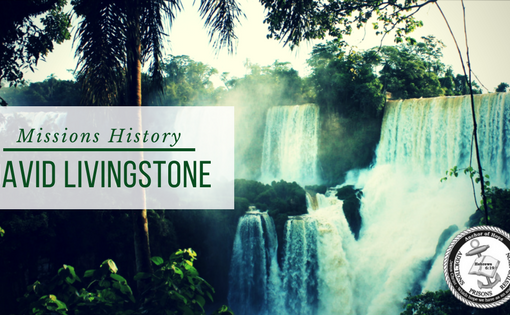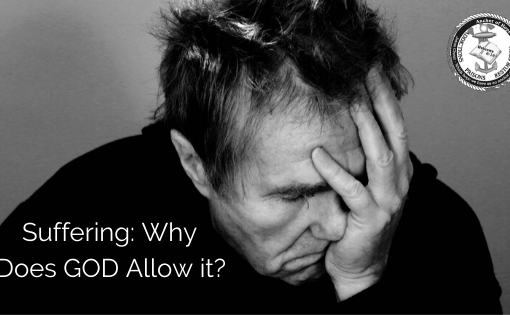
From runaway slave to the founder of the first black Baptist church in Canada, David George’s life was one of remarkable courage. He overcame racial prejudice, poverty, and many other obstacles to serve God. And his life blazed forth the light of the gospel on the Dark Continent.
Here is the incredible story of missionary David George.
Early Life and Conversion
In 1743, David was born into an enslaved family on a Virginia plantation. He grew up in bondage, poverty, and oppression. And opportunities for education were practically non-existent. At nineteen, he faced heartbreak as he watched his mother cruelly whipped and left to die. Young David ran away and spent the next ten years in the wilderness of Georgia as a fugitive.
After several captures and escapes, he finally ended up on a South Carolina plantation- a slave again. David realized his sin and need of a Saviour. He later wrote, “Soon after I saw that I could not be saved by my own doings, but that it must be by God’s mercy that my sins had crucified Christ, and now the Lord took away my distress. I was sure that the Lord took it away, because I had such pleasure and joy in my soul, that no man could give me.”
By God’s grace, a childhood friend of David’s travelled to his small town to preach. An itinerant evangelist, George Liele was a freed slave who would soon found the first black Baptist church in North America. But, first, he had a burden for David’s soul.
After Reverend Liele shared the gospel with David, the young slave brought his burdens to Jesus’ feet. He placed his trust in Christ’s death for salvation and found rest for his troubled soul. (Contact us at the local church’s prison ministry to learn how you, too, can do this).
Ministry in the States
Soon, Reverend Liele helped David, his wife, and six other believers to start America’s first black Baptist church. By careful study, David taught himself to read. He became their first pastor, and God grew the church to thirty members.
After the Revolutionary War broke out, the British offered freedom to any slaves who would stay loyal to Britain. So Pastor George and his congregation moved to Georgia and cast their lot with the British. The war years were difficult, with sickness, starvation, and food shortages dogging their every step.
Ministry in Canada
Three years later, Britain conceded defeat in the face of the newborn United States. However, the black Loyalists were offered land and freedom in Nova Scotia. Pastor George and his faithful congregation boarded a ship and headed north in November 1782.
However, they were disappointed to find that conditions in Nova Scotia were more difficult than they imagined. They faced a winter colder than any they’d ever experienced. Housing was in short supply, and black Loyalists were treated with suspicion and outright prejudice.
Soon after their arrival, David was excited to begin preaching again. He held meetings in the woods and by a river, and many people came out of curiosity and heard the gospel. However, the European settlers and justices were opposed to David’s ministry and forbad him to preach by the river. But David continued to preach and baptized new converts almost every month. The church members began to build a church, piece by piece, and it was completed by the next summer.
In Nova Scotia, David was constantly persecuted by disbanded soldiers and citizens of every colour. Physical violence, loss of property, and public mockery and cruelty were just a few of the ways he suffered. Yet he continued undaunted, and he even travelled to New Brunswick and across Nova Scotia to preach.
Ministry in Africa
In the fall of 1791, the Sierra Leone Company offered free passage for any free blacks who wanted to return to Africa. An abolitionist association of British people, they wanted to help Africans oppose the slave trade and reach their continent with the gospel.
After so much persecution, Pastor George and his people looked forward to a new beginning. They sailed on January 15, 1792, and landed in West Africa on March 7. Their new home was named Freetown. It was what William Wilberforce called “the Christian experiment.” English-speaking nations watched to see the results.
Right away, David began evangelistic work and construction on a church building. Within weeks, he baptized five new converts in the Sierra Leone River. This historic moment became what we now call the first Baptist church in Africa, and David was its first pastor. He went on to serve his people in Africa for the rest of his earthly life. He campaigned against the slave trade, visited England to plead for more missionaries, represented the British authorities, and preached the gospel at every opportunity.
In 1810, David George died in Freetown, Sierra Leone. He left behind a loving family, a thriving church, and a legacy of souls saved in three countries. And his tireless work for Freetown’s success led to the evangelization of Africa and the abolition of the slave trade.
Throughout his life, David faced serious persecution for his faith, in addition to great trials. Compared to his life, our lives look relatively easy. But how often do we make excuses for not serving God or sharing the gospel? Like David, we ought to faithfully share the gospel and stay faithful to the Lord. At the local church’s prison ministry, that is our prayer and our goal!
________________________________________________________________
Are you searching? Jesus has the answers for addictions and stubborn habits. For more information, send the Crossmans a private message here on Facebook or come to a church service at Prince Albert Baptist Church. Take the first step in a walk of freedom!
For more information, call (306) 940-9554 or email anchorofhopeheb@gmail.com




